Jewish Thought
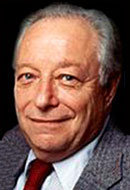 The Conscience of a Jewish Conservative
The Conscience of a Jewish ConservativeFriday, January 21, 2011 by Ruth R. Wisse | Jewish Ideas Daily » Daily Features
A Jewish thinker is normally someone devoted to the study and interpretation of Jewish texts, Jewish history, Jewish issues, Jewish ideas. The late Irving Kristol (1920–2009) was, for the most part, something else: a consummate American intellectual.
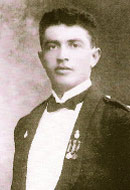 A Zionist Who’s Who
A Zionist Who’s WhoThursday, January 20, 2011 by Yehudah Mirsky | Jewish Ideas Daily » Daily Features
The state of Israel, like the Zionist movement in all its forms—political, cultural, artistic, religious—was an astounding collective creation. The famous names are known, as are the slightly less famous. But what about all the others?
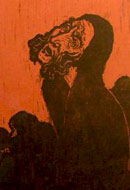 Where Have All the Prophets Gone?
Where Have All the Prophets Gone?Tuesday, January 18, 2011 by Aryeh Tepper | Jewish Ideas Daily » Daily Features
Writing in 1911, Martin Buber declared that "the nature of the prophets" lives within the Jewish people. A hundred years later, do any Jews still believe this?
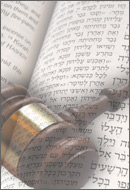 Law and Morality
Law and MoralityMonday, December 27, 2010 by Yehudah Mirsky | Jewish Ideas Daily » Daily Features
Are ethics and law at odds? Does the law define what is ethical, or do ethical concerns have their own purchase on the law? These questions, universally applicable, have special relevance to a religious culture like Judaism, whose traditional law is embodied in the vast corpus of halakhah.
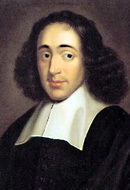 Secularism and Its Discontents
Secularism and Its DiscontentsFriday, December 17, 2010 by Yehudah Mirsky | Jewish Ideas Daily » Daily Features
The transformations of Jewish life in the last two-and-a-half centuries still boggle the mind. Deep ruptures opened to separate the present from the past, modernity from tradition, setting terms that have defined the contours of Jewish life until today. How did people try to think their way through the change?
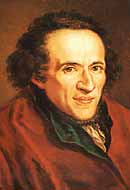 Whatever Happened to Moses Mendelssohn?
Whatever Happened to Moses Mendelssohn?Monday, December 6, 2010 by Allan Nadler | Jewish Ideas Daily » Daily Features
The great German-Jewish philosopher Moses Mendelssohn (1729–1781) was and remains a perplexing, rather sad, enigma.
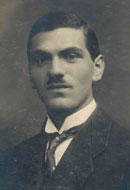 The Cosmopolitans
The CosmopolitansFriday, November 26, 2010 by Yehudah Mirsky | Jewish Ideas Daily » Daily Features
How many flavors does Zionism come in? The usual answer is three. Naturally, the reality is more complicated than that. And, in a period when Zionism is in serious need of defending and new thinking, some scholars have been complicating it still further.
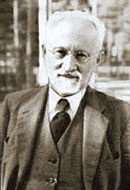 The Non-Zionist
The Non-ZionistMonday, November 8, 2010 by Yehudah Mirsky | Jewish Ideas Daily » Daily Features
The YIVO Institute in New York recently marked the 150th birthday of perhaps the most eminent among its founders: the historian and nationalist ideologue Simon Dubnow (1860-1941). Massively influential in its time, Dubnow's historical writing has been overshadowed by the work of later generations of scholars. In the meantime, the cause he championed—Diaspora Jewish nationalism—was throttled by the Holocaust. Yet the man and his ideas may be ripe for rediscovery.
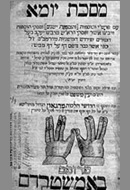 The Persian Talmud
The Persian TalmudTuesday, November 2, 2010 by Yehudah Mirsky | Jewish Ideas Daily » Daily Features
A recent gathering of scholars who have been intensely researching the buried treasures of "Irano-Judaica," together with the release of a volume titled The Talmud in its Iranian Context, underscores one of the most exciting developments in Jewish studies: the effort to put the "Babylonia" back into the Babylonian Talmud.
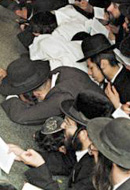 The Mad Mystic of Bratslav
The Mad Mystic of BratslavMonday, November 1, 2010 by Allan Nadler | Jewish Ideas Daily » Daily Features
Rabbi Nahman of Bratslav (1772-1811) is the strangest and most paradoxical leader in the history of Hasidism, and one of its most original, albeit mad, geniuses. Nahman has been an object of both literary fascination and considerable scholarly research. He also shares center stage with Franz Kafka (1888-1924) in Rodger Kamenetz's Burnt Books.
Editors' Picks
Mighty Jacobson Shana Rosenblatt Mauer, Haaretz. However darkly comic and compelling, the thick Manchester jargon and Yiddishisms of Howard Jacobson's Mighty Walzer may prove prohibitive for American readers.
Small Victory Anshel Pfeffer, Haaretz. By ostentatiously listing himself as "without religion," the novelist Yoram Kaniuk has confirmed the failure of secular Israelis to provide an alternative vision of Judaism.
Let Us Now Praise Muslim Feminists Phyllis Chesler, Pajamas Media. One Jewish woman celebrates the 19th- and early-20th-century Muslims who emerged from sex slavery to fight for universal human rights.
Hope Springs Talmudic Shai Secunda, Jewish Week. Unfolding beyond the crush of defeat, the Talmud's vigorous spirit of inquiry represents a great, resilient optimism.
Declaring Death Gil Student, Torah Musings. In the 1960's, Israeli doctors began aggressively promoting the view that declaration of death was a purely medical matter. But it wasn't easy to enlist rabbis in their cause.
Why Fast? Elli Fischer, Adderabbi. Expiation, corrective, a reflection of mood, or sensitization to the plight of the needy? Only one of these reasons has biblical support.
Bad Bans Brad Hirschfield, Washington Post. By banning bans on circumcision, California now drives the debate about this issue underground, where it will fester among the most hostile opponents of the practice.
The Mind of Trilling Gertrude Himmelfarb, New Criterion. It was Lionel Trilling's "moral imagination" that enabled him to venture into areas normally foreign to literary critics—including Jewish philosophy.
The Audacity of Faith Yehudah Mirsky, Jewish Review of Books. A biography of Yehuda Amital reveals a daringly exuberant figure whose journey led from a Nazi labor camp to a unique and controversial place in Israeli religious and political life.
Nothing New in Bedlam Janet Tassel, Right Truth. In a brilliant 1989 essay, Jeane Kirkpatrick foresaw the long march through the UN that has led to the bid for Palestinian statehood.

